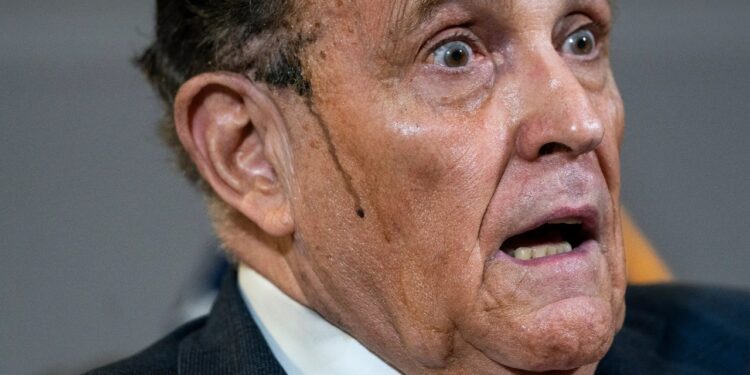U.S. president Donald Trump has issued sweeping presidential pardons to Rudy Giuliani and several close associates accused of trying to overturn the 2020 election, marking one of the most controversial acts of his new administration.
A decisive show of loyalty
The White House announced the pardons on Friday evening, describing them as part of an effort to “end politically motivated prosecutions and restore justice.” Those cleared include Giuliani, the president’s long-time lawyer; attorneys Sidney Powell and John Eastman; and former White House chief of staff Mark Meadows.
In a written statement, President Trump said the individuals “acted in defence of the Constitution and in pursuit of fair elections” and accused the previous administration of “weaponising the justice system to punish political opponents.”
Symbolic and strategic move
While some of the pardoned figures had not been convicted, the decision effectively shields them from future federal charges connected to post-2020 election investigations. State-level proceedings in Georgia and Arizona, however, remain unaffected. Legal experts say the pardons may complicate cooperation between state and federal agencies, while underscoring how presidential clemency powers can reshape the boundaries of accountability.
Political fallout and reactions
The move has provoked sharp criticism from Democrats, who called it “an affront to the rule of law.” Senate Majority Leader Chuck Schumer said the pardons were “a reward for corruption and disinformation.” Republican allies, meanwhile, hailed them as “a long-overdue correction of politically driven injustice.”
Within the administration, officials have framed the move as an act of reconciliation, arguing it is time to “turn the page” on what they describe as years of biased investigations into the former opposition.
Repercussions for governance and perception
The decision has reignited debate over the scope of presidential powers. Critics warn that it risks setting a precedent where political loyalty is prioritised over accountability. Supporters counter that the president’s constitutional authority to pardon is absolute and has been used throughout U.S. history to heal political divisions.
Financial markets and the Washington press corps reacted swiftly, viewing the pardons as evidence that Trump intends to consolidate control and challenge institutional norms during his current term.
Looking ahead
As the president continues to outline his second-term agenda, the pardons are likely to define both his leadership style and his relationship with the justice system. Whether they strengthen his political base or deepen partisan divides, they signal that Trump intends to govern on his own terms — unapologetically and with unwavering loyalty to those who stood by him.
Newshub Editorial in Americas – 2025-11-10



Recent Comments